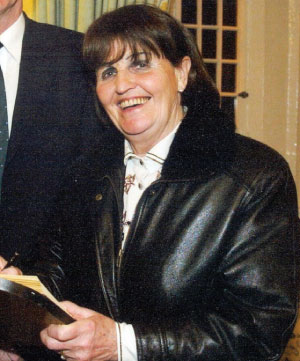House of Lords: Debate on India
In House of Lords in the United Kingdom recently had a debate that called attention to recent developments in India.

In the United Kingdom, Baroness Cox Dec. 18 called attention to recent developments in India in a debate Dec. 18 in the House of Lords.
Following the recent terrorist atrocities in Mumbai the debate focused on tensions in the subcontinent and how the Indian government can be supported in reducing the risk of terrorism. Here are some excerpts.
Excerpts from the remarks of Baroness Cox: I must naturally begin by expressing the profound sorrow that we all felt at the recent terrorist attack in Mumbai and by extending our deep sympathy to all who are still suffering in the aftermath of those terrible days. I will then raise three issues of concern in a spirit of respect for India as a long-established friend of this country and as the world’s largest democracy. It is characteristic of friendship that one can share concerns openly and constructively and
it is in that spirit that I will raise (1) the outbreaks of violence against religious minorities, including the Muslims in Gujarat and the Christians recently in Orissa and Karnataka; (2) the restrictions on religious freedom posed by the imposition of anti-conversion laws in seven states; and, finally, (3) the plight of dalits.
The recurring problem of violence, perpetrated by Hindu fundamentalists against religious minorities, is a product of the ideology called Hindutva, which conceives of India as one nation, one culture, one religion. It is an ideology that denigrates religious minorities and rejects the right to change one’s religion, as enshrined in the Universal Declaration of Human Rights, and groups that espouse this ideology, including the VHP, are widely implicated in anti-minority violence. Such extremist political movements are rejected by Hindus committed to the idea of a secular India, but they pose very serious challenges.
In 2002, about 2,000 people, mostly Muslims, were massacred in Gujarat. Christians have been repeatedly targeted in recent years. The attacks are especially widespread in Karnataka, Andhra Pradesh and Madhya Pradesh states, and although a recent outbreak of violence in Karnataka was relatively rapidly contained by the authorities, impunity for these sorts of attacks is cause for concern. In Orissa state, an outbreak of violence against Christians over Christmas in 2007 prefigured an onslaught on a much larger scale this autumn.
On Aug. 23 this year, following the assassination of Swami Laxmanananda Saraswati, widespread violence against Christians erupted. The atrocities were committed despite the claim by Maoists that they had carried out the killing. After the assassination, despite pleas for caution by church and secular leaders, including representatives of political parties, the VHP arranged for his body to be taken on a 200-kilometre circuit. Violence followed in the wake of this funeral procession, fanned by media disinformation and the chanting of Hindu nationalist and anti-Christian slogans, targeting Christians and church buildings. It is widely believed that the violence erupted so quickly because it was pre-planned.
In our report, we concluded that the Orissa state government had failed to provide protection for the Christian minority population, allowing widespread violations of human rights—including killings, rape, looting and the destruction and desecration of places of worship, homes and other property—and that the forced conversion of some Christians to Hinduism constitutes a serious violation of the right to religious freedom.
It is noteworthy that Hinduism and the caste system have only relatively recently, in the past 50 years, been introduced into this region.
I turn briefly to widespread concern at the anti-conversion legislation now in place in seven states. This applies to those who wish to convert from Hinduism to another faith: in practice, it does not prohibit conversion to Hinduism from other faiths. The legislation requires anyone wishing to convert from Hinduism to give advance notice to the district authorities, rendering them vulnerable to pressures of many kinds. In the case of Gujarat, the person who converts another must obtain prior permission of the authorities.
These requirements obviously hinder the freedom to choose and change religion, in violation of Article 18 of the Universal Declaration of Human Rights to which India is a signatory.
The final topic to which I wish to refer raises the plight of the dalits, those deemed to be outside the caste system and therefore treated as inherently untouchable. Their predicament is unenviable. Unable to take work or to come into contact with members of the caste system, many are doomed to undertake the most humiliating and unsanitary tasks, such as the 700,000 or more manual scavengers dealing with human excrement. Others are so poor that they become involved in bonded labor from which they cannot escape, so that this form of servitude is passed from one generation to the next. Dalits are susceptible to any form of exploitation and there is widespread caste-based violence against them. In an attempt to escape from their outcast status, many dalits are converting from Hinduism to another faith—Buddhism, Islam or Christianity.
This disruption of the traditional caste system is causing tensions and attracting opposition, especially from proponents of the Hindutva, some of which may be reflected in violence against religious minorities.
It is impossible in one speech to begin to do justice to the vast nation of India with its indescribably rich tapestry of ethnic groups, cultures, traditions, achievements and problems. I greatly look forward to the speeches of other noble Lords who will bring information and insights from their own knowledge and experience to create a constructive and comprehensive debate worthy of the issues confronting this great nation which we are proud to call a friend.



